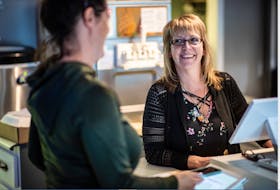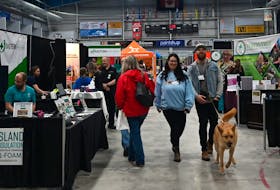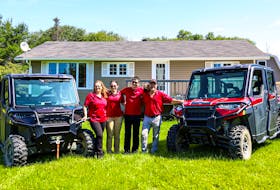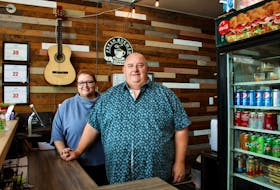Most people complain of being exhausted and blame their jobs, their young children or their busy schedules. Generally, they feel better when they go to bed earlier or nap on the weekend to catch up on their rest ... but that isn’t always the case.
Registered Respiratory Therapist Jaime Williams says people often expect to feel better if they go to sleep earlier, but they realize they’re still overly tired during the day.
“Maybe they’re making an effort to get more sleep, but they still aren’t feeling any better,” says Williams. “They’re still tired all of the time, and they don’t know why. Nothing seems to be helping.”
Being excessively sleepy during the day could point to Obstructive Sleep Apnea (OSA). Additional symptoms can include heavy snoring, pauses in breath while you’re sleeping, choking or gasping in your sleep, high blood pressure, drowsiness while driving, restless sleep, poor memory or concentration and waking up feeling groggy.
“A lot of people are surprised because they hadn’t heard of Sleep Apnea before,” says Williams. “It’s not something they ever considered they might have.”
Obstructive Sleep Apnea is a potentially life-threatening condition that occurs when a person repeatedly stops breathing while they sleep due to a collapse in their airway.
“They stop breathing because their airway closes off, and their brain says ‘OK, I’m not breathing!’ Then here’s this big whooshing breath, almost like a choke or a gasp,” explains Williams, the regional director of Respiratory Therapy Specialists Inc. “They may stop breathing multiple times every hour, all night long.”
It isn’t always clear why a person has it, but causes can include weight gain, alcohol or sedative use, decreased muscle tone, or simply the physical makeup of the person’s airway. Williams says it’s often a person’s spouse who notices they’re snoring excessively and/or having issues breathing while they sleep.
Left undiagnosed and untreated, Obstructive Sleep Apnea can result in motor vehicle collisions, decreased quality of life, diabetes, impotence, high blood pressure, stroke or cardiac arrest. But Williams says treating Sleep Apnea can significantly improve a person’s health.
“We have clients who were taking medication for high blood pressure, and once they started treatment they were able to reduce or even stop that medication because they no longer needed it,” says Williams.
For more than 25 years, Respiratory Therapy Specialists Inc. (RTS) has been providing home oxygen and sleep apnea services to the people of Newfoundland and Labrador.
What started in the basement of a St. John’s home back in 1992 has grown to four locations across Newfoundland -- St. John’s, Spaniards Bay, Gander and Corner Brook -- as well as three locations in Nova Scotia -- Halifax/Dartmouth, Windsor, New Glasgow, New Minas and Bridgetown, as well some casual clinics in Grand Falls-Windsor, N.L. and Bridgetown and Windsor, N.S.
If you’re concerned you or a loved one may have Obstructive Sleep Apnea, Williams encourages you to call the team at RTS.
“Speak with one of our therapists and tell them about your symptoms, and they may ask you to come in for a free sleep study,” says Williams. “We set them up with a portable sleep monitor, and then they’re able to go to sleep in their own home. There’s absolutely no charge.”
When the client brings the monitor back, an independent sleep specialist interprets the results. If they do indeed have Obstructive Sleep Apnea, Williams says they can be paired with an RTS respiratory therapist and start sleeping with a CPAP (continuous positive airway pressure) that ensures their airway remains open.
“It’s something that’s easy — and free — to get checked out, and we want people to come in and see us if they suspect a problem,” says William. “Once you begin treatment for Obstructive Sleep Apnea and start getting a proper night’s sleep, you can’t even believe the difference in your quality of life. You feel so much better.”









